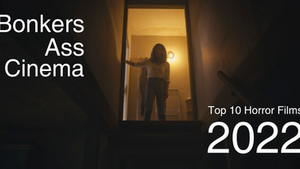
As the spaghetti western acquiesced to the law of diminishing returns in the early 70’s, Italian filmmakers began looking elsewhere for inspiration. The American new wave was churning out popular cop and crime films, such as The French Connection, Dirty Harry, and The Godfather, while the exploitation underbelly saw such vigilante ditties as Death Wish and Coffy. In France, Jean-Pierre Melville had already put forth his crime masterpieces (and Michael Mann crib sheets), Le Samouraï and Le Cercle Rouge. Which is all the long way of saying that, true to form, the Italians also wanted in on the action. And thus, the poliziotteschi genre was born.
Or Poliziesco all'Italiana, if you’re a real prick about your Italian grammar.

Poliziotteschi would prove to be the Italian film industry’s most dominant genre for much of the decade of the 1970’s, where established spaghetti western stars, such as Tomas Milian, Franco Nero, and Lee Van Cleef would reign almost as ubiquitously as before. The films were styled much like their American counterparts, incorporating all the same elements you would expect in run-of-the-mill crime, mob, cop, heist, and vigilante films. However, Italy was not a well nation at this point. The nation was in the midst of a two-decade long period of sociopolitical unrest (the “Years of Lead”). Crime and terrorism ran rampant; political parties openly engaged in assassinations, kidnappings, and bombings; organized crime families warred with each other on the streets; the deep, ingrained currant of fascism still flowed freely through the political climate, even in the post-Mussolini years. It’s not surprising then that a lot of this angst and violence found its way onto celluoid.
Which brings me to Live Like a Cop, Die Like a Man (1976). The way this film treats women and basic civil rights is reprehensible. It’s by far, one of the most fascistic, sexist, and…
…coolest things I’ve ever seen.

It’s just one of those exploitation films where you need to compartmentalize the larger whole from its few nastier, problematic elements. I have a feeling that many people who are into these types of films have no problem doing this, but if you can’t stomach some extreme misogyny and borderline rapey behavior, I would sit this one out.
Live Like a Cop, Die Like a Man was directed by Ruggero Deodato of Cannibal Holocaust fame (speaking of problematic things) and written by Fernando Di Leo, who had previously directed the poliziotteschi classics, Caliber 9 and Il Boss. The film is basically a reimagining of Starsky & Hutch with the blonde and dark-haired leads behaving more like Dirty Harry. But worse. Marc Porel and Ray Lovelock play Fred and Tony, two vicious cops on the Special Force, a secretive police group that targets big criminals—and whose own dirty deeds are swept under the rug by their chief (Adolfo Celi from Thunderball). The razor-thin plot involves taking down a mob kingpin named Bibi (Renato Salvatori), but much of the action comes from unrelated interludes, as Fred and Tony intervene in things like a hostage situation, a robbery, and a badass motorcycle chase for no real reason.
Quentin Tarantino said this film has “one of the greatest titles of all time, and it lives up to its name.” I’d agree with that. The movie exudes style and cool in equal measure, and it’s easy to be see why Tarantino would be a fan of this. I’m particularly partial to the soundtrack, which consists of two Bob Dylan-ish, pre-electric folk songs sung by Lovelock himself (“Won’t Take Too Long” and “Maggie”). On paper, the contrast between that style of music and the violence on screen probably sounds rather anachronistic, though in practice it lends the film a greater quality worth discussing: that of the characters’ resonance as folk heroes.

I imagine in those dark days in Italy, the average movie goer would get much satisfaction in watching these hip, young cops blast away seedy criminals—no matter how fascistic or inappropriate their tactics are. The American parallel would probably be the success of Death Wish in 1974. Americans, too, were exhausted by the crime in cities such as New York and L.A., which had reached absurd levels that we haven’t seen since, and audiences were more than delighted to see Charles Bronson take on the criminal element.
And that, to me, is where I found Live Like a Cop, Die Like a Man slightly off-putting. There’s no denying the fascistic, extreme right wing themes in both, Death Wish and Dirty Harry. However, both films deal with those issues in very complex and moral ways. Liberal audiences are often appalled at the pro-gun, fascistic message in Death Wish, but never seem to mention or notice the layers of the argument being put forth. It’s definitely a pro-gun, fascist movie, but gun culture is also profoundly mocked when Bronson calls guns an extension of the penis—not to mention the scene where he is completely taken with the ridiculous, touristy cowboy reenactment is totally hilarious. Also, it’s quite obvious that by the end, when he’s a psychotic, full-blown vigilante, it’s a tragedy, and thus, nothing to be celebrated.
Live Like a Cop, Die Like a Man offers none of these complexities. These guys are just fascist douche bags and serial women harassers, to boot. That does chip away at some of the enjoyment of the film. However, when you watch a scene where Fred and Tony practice their shooting skills by lining up cans along canyon walls dug out of a mine, and then proceed to get on opposite sides, spinning around ceaselessly along the walls, dizzily shooting at the cans inches from each other’s heads, right as they get attacked by snipers—you’re a bit more forgiving of fascism.





